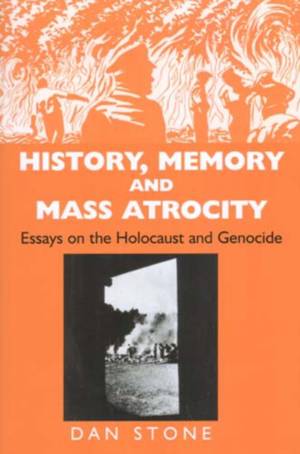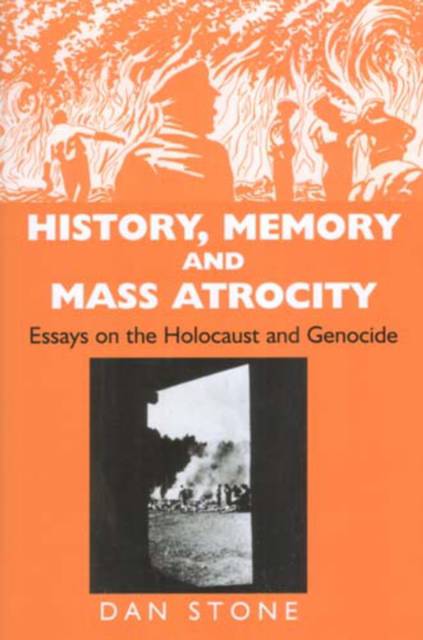
Bedankt voor het vertrouwen het afgelopen jaar! Om jou te bedanken bieden we GRATIS verzending (in België) aan op alles gedurende de hele maand januari.
- Afhalen na 1 uur in een winkel met voorraad
- In januari gratis thuislevering in België
- Ruim aanbod met 7 miljoen producten
Bedankt voor het vertrouwen het afgelopen jaar! Om jou te bedanken bieden we GRATIS verzending (in België) aan op alles gedurende de hele maand januari.
- Afhalen na 1 uur in een winkel met voorraad
- In januari gratis thuislevering in België
- Ruim aanbod met 7 miljoen producten
Zoeken
€ 47,45
+ 94 punten
Omschrijving
The book's main theme is the interpretation of the Holocaust and genocide in historiography, philosophy and the contemporary culture of commemoration. Running through the essays is an attempt to understand the Holocaust's relationship to 'modernity'; the need to find ways of understanding genocide through apparently 'non-rational' forms of explanation (especially derived from anthropology); and the desirability of relating the Holocaust to other instances of genocide. The book investigates the ways in which individual thinkers (Malinowski, Arendt, Bataille, Perec, Ricoeur) can help us conceptualise the Holocaust, and also deals with many of the major themes of Holocaust and Genocide Studies in recent years: problems of handling testimony; problems of erecting monuments and museums; the representability of the Holocaust through texts, photographs, monuments and museums; the possibility of understanding why individuals take part in genocide; and the relationship of the Holocaust to colonial genocide. Contains previously inaccessible essays. The book is arranged into four sections: interpretations of the origins and nature of the Holocaust; studies of individual thinkers' responses to the Holocaust; questions of representation and commemoration; and understanding genocide.
Specificaties
Betrokkenen
- Auteur(s):
- Uitgeverij:
Inhoud
- Aantal bladzijden:
- 262
- Taal:
- Engels
Eigenschappen
- Productcode (EAN):
- 9780853036623
- Verschijningsdatum:
- 1/03/2006
- Uitvoering:
- Paperback
- Formaat:
- Trade paperback (VS)
- Afmetingen:
- 155 mm x 229 mm
- Gewicht:
- 430 g

Alleen bij Standaard Boekhandel
+ 94 punten op je klantenkaart van Standaard Boekhandel
Beoordelingen
We publiceren alleen reviews die voldoen aan de voorwaarden voor reviews. Bekijk onze voorwaarden voor reviews.









